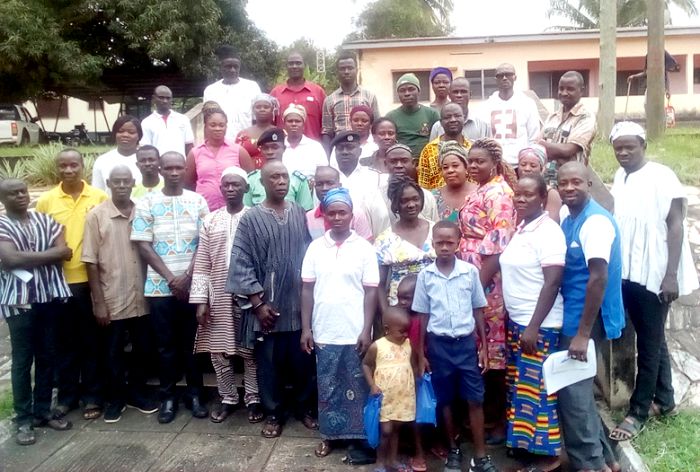
NCCE describes corruption as insidious plague
The Kadjebi District Director of the NCCE, Mr Daniel Agbesi Latsu, has observed that the nation risks losing the gains made over the years if corruption remains unchecked.
He has, therefore, advised the public to help fight corruption holistically in all dimensions and forms for the good of society.
Advertisement
Mr Latsu described the act as an “insidious plague with a wide range of corrosive effects on societies.”
Addressing a community durbar at Kadjebi, he said corruption had remained a major challenge to Ghana’s socio-economic and political development since independence and urged the citizenry to shun it and join the fight against corruption in all its forms.
The community durbar was organised by the NCCE with support from the European Union (EU) under its Accountability, Rule of Law and Anti-Corruption Programme (ARAP) which is taking place in all districts in the country.
Empowering community members
The goal of the engagement was to empower community members to demand accountability from public officials, and thus, help the Commission to deliver on its National Anti-Corruption Action Plan (NACAP) responsibilities.
Mr Latsu explained that the citizenry needed to acknowledge the multi-dimensional character of the problem and also recognise the fact that corruption undermined good governance, rule of law and eroded public confidence in the merit and rewards system.
He also admonished the citizenry to resist, reject and report all corrupt acts to the lawful agencies for investigation and prosecution.
The Kadjebi District Director of the Commission on Human Rights and Administrative Justice (CHRAJ), Mr Eric Arthur Fynn, portrayed corruption as a deadly virus eating its way into the body politic.
He said the act if not checked and brought under control would undermine the effectiveness of the present or any future government of Ghana.
Whistle-blowing
Mr Fynn, who spoke on the theme: “Whistle blowing mechanism and anti-corruption: the role of the citizenry”, said being critical in fighting corruption was to report it because reporting corruption helped to identify trends, issues and potential risks, and also promoted the participation of citizens and ordinary people.
He explained that whistle blowing enhanced the capacity to report and expose corruption more safely.
The Akwamuhene of the Kadjebi Traditional Area, Nana Owusu Sekyere II, called on the citizenry to co-operate in fighting corruption since the exercise was a complex undertaking.
Nana Sekyere II said the act hampered efforts to alleviate poverty, undermined political stability and economic growth and also diminished the country’s attractiveness for investment.




